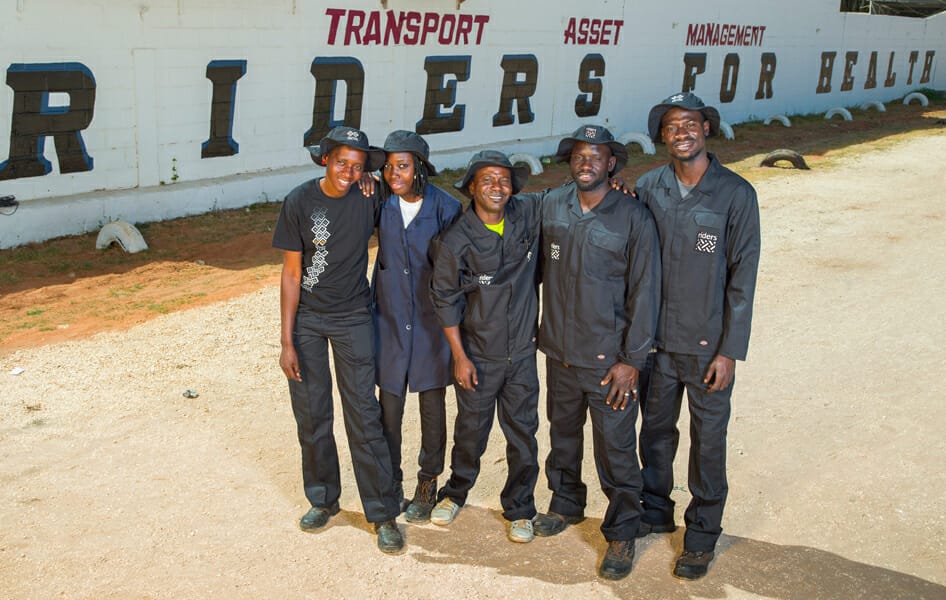
Lamin Nicol, Operations Manager, Riders for Health, The Gambia
We have continued to provide health organisations of Lesotho with reliable transport for the last 30 years. But recently with the retirement of a number of senior technicians and with it a loss of knowledge and experience in the programme, combined with the inertia that is prone to develop when processes are not updated, we knew it was time for a systems upgrade and staff re-retraining in order to maintain the Riders standard.
The Lesotho workshop was in need of an upgrade and the staff needed re-training. When we began nationwide operations in Lesotho in 1991 our ability to reliably mobilise outreach health workers meant that for the first time the government of Lesotho and other health organisations operating in the country could ensure the delivery of health services and care to hard to reach communities in this mountainous nation.
Lamin’s visit has been transformative for us. The workshop looks incredible, like new! Everything is organised well and our morale is high in our newly re-trained team.
Discussing the challenge with fundraising partner Two Wheels for Life, we came up with a plan. We asked if they would fund the travel and time of a senior member of staff, Lamin Nicol, Head of Vehicle Management, Riders for Health, The Gambia to support us in a whole programme upgrade and Two Wheels for Life agreed.

Images of Lesotho workshop by Tom Oldham, Jan 20
Using his 20 years of experience in the organisation, as well as the Riders’ handbook developed collaboratively by the international Riders teams, Lamin introduced a robust system for stock management and vehicle and part replacement. He trained the supply-chain officer and stores manager, carried out intensive training on technicians and skilled them in report writing for the performance and monitoring of vehicles. Lamin also identified gaps in our rider training processes and re-trained our trainer in current best practice. In addition, by the time he returned to The Gambia, of 40 motorcycles which had had undiagnosed engine problems, 30 he had found to be refurbishable and five were already back on the road delivering health services!
In order to do this work Lamin had to leave his family in the Gambia for many months and the trip was extended because of the COVID-19 lockdown. We are grateful for him for dedicating his time to improving our programme, for the Gambia programme for loaning him to us and for Two Wheels for Life for funding this work.
We are determined to uphold the gold standard in vehicle maintenance and management to maintain support for healthcare institutions across Africa. Not to do so means wasting precious resources and much, much more vital, lives and well being. We must never become complacent. We must ensure that systems and staff training take place regularly, continually updating our systems-manual and, most important of all, retaining our staff. We rely on senior leaders like Lamin Nicol to share their knowledge and experience across all our country programmes and to find and develop new talent.


